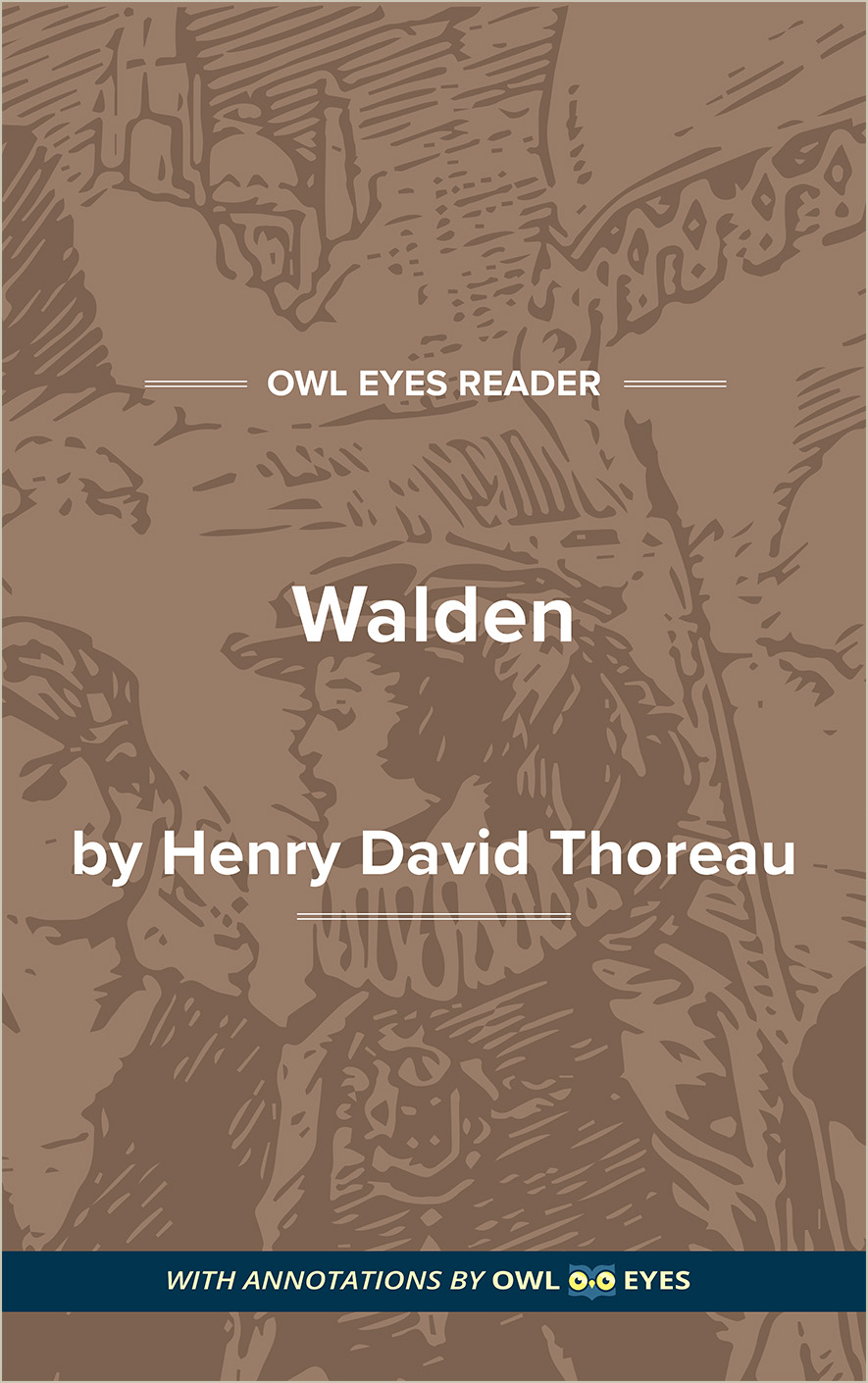Analysis Pages
Allusion in Walden
Allusion Examples in Walden:
Economy
🔒"Vitruvius..." See in text (Economy)
"and not detect the motes in his eyes..." See in text (Economy)
"Minerva..." See in text (Economy)
"Momus..." See in text (Economy)
"and that to retain it would be like keeping new wine in old bottles..." See in text (Economy)
"the same purpose as the Iliad..." See in text (Economy)
"the winter of man's discontent..." See in text (Economy)
"the music of Memnon..." See in text (Economy)
"the blushes of Aurora..." See in text (Economy)
"Chapman..." See in text (Economy)
"Parcae..." See in text (Economy)
Where I Lived, and What I Lived For
🔒"like pygmies we fight with cranes;..." See in text (Where I Lived, and What I Lived For)
""There was a shepherd that did live,..." See in text (Where I Lived, and What I Lived For)
"Memnon..." See in text (Where I Lived, and What I Lived For)
"chanticleer..." See in text (Where I Lived, and What I Lived For)
"like Atlas..." See in text (Where I Lived, and What I Lived For)
""I am monarch of all I survey,..." See in text (Where I Lived, and What I Lived For)
Sounds
🔒"Atropos..." See in text (Sounds)
"sons of Tell..." See in text (Sounds)
The Village
🔒""You who govern public affairs, what need have you to employ punishments? Love virtue, and the people will be virtuous. The virtues of a superior man are like the wind; the virtues of a common man are like the grass—the grass, when the wind passes over it, bends."..." See in text (The Village)
"The Pope's Homers..." See in text (The Village)
"the Sirens..." See in text (The Village)
"Orpheus..." See in text (The Village)
The Ponds
🔒""brave attempt resounds."..." See in text (The Ponds)
"the Icarian Sea..." See in text (The Ponds)
"Castalian Fountain..." See in text (The Ponds)
"Michael Angelo..." See in text (The Ponds)
"ambrosial..." See in text (The Ponds)
""to fresh woods and pastures new,"..." See in text (The Ponds)
Higher Laws
🔒""How happy's he who hath due place assigned To his beasts and disafforested his mind! . . . . . . . Can use this horse, goat, wolf, and ev'ry beast, And is not ass himself to all the rest! Else man not only is the herd of swine, But he's those devils too which did incline Them to a headlong rage, and made them worse."..." See in text (Higher Laws)
"Mencius..." See in text (Higher Laws)
"Hindoo commentator..." See in text (Higher Laws)
"the Ved..." See in text (Higher Laws)
"Chaucer's nun..." See in text (Higher Laws)
Conclusion
🔒""Erret, et extremos alter scrutetur Iberos...." See in text (Conclusion)
""Direct your eye right inward, and you'll find..." See in text (Conclusion)
"and lo! creation widens to our view...." See in text (Conclusion)
"A living dog is better than a dead lion..." See in text (Conclusion)
"the Sphinx..." See in text (Conclusion)

